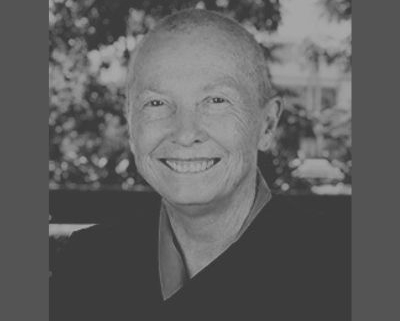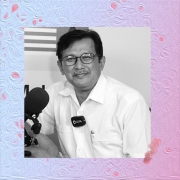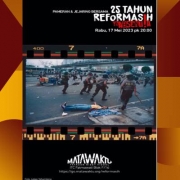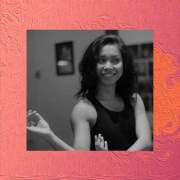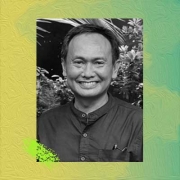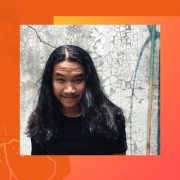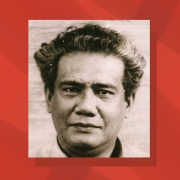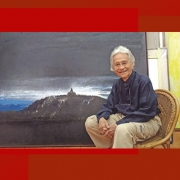Reflections of a Buddhist Nun
by Karma Lekshe Tsomo
For years now, around the world, young people have been fleeing the villages and settling in cities in search of social freedom and opportunity. The results have been mixed. Like honey on the edge of a sword, these migrations have resulted in both happiness and pain, success for some and disaster for others. Now, disillusioned by the human fallout of corporate capitalism and facing the dangers of a global pandemic, some are returning to the villages and discovering the joys of nature and serenity. I am one of them.
As I was growing up near the ocean in California, surfing was my life. After college, I spent a year studying Buddhism in Japan and fifteen years studying Buddhism in Dharamsala, the Indian Himalayan village where His Holiness the Dalai Lama lives. In 1977 in France, I realized my dream of becoming a Buddhist nun and continued my studies in India. While searching the Himalayan foothills for land to build a study center for nuns, I got bitten by a poisonous viper and nearly died. Eight days later, my friends drove me to a hospital in Delhi, fourteen hours away, where we arrived in the midst of monstrous heat, humidity, and traffic. Thankfully, the doctors didn’t amputate my arm, because they didn’t expect me to live and weren’t sure who would pay the bills. I survived, but it was a close call and it took me a year to learn to use my reconstructed arm again.
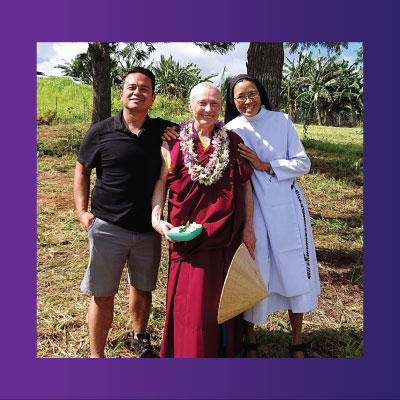
La’i Peace Center.(Foto: Karma Lekshe Tsomo)
After recovering from the snake bite, I spent ten years studying religion and philosophy at the University of Hawai’i, while living nearby in peaceful Manoa Valley. The next twenty years I spent teaching in San Diego, California and working for gender equity for Buddhist women. With friends from many different countries, I helped found Sakyadhita International Association of Buddhist Women and Jamyang Foundation, nonprofits to support the empowerment and education of women around the world, especially in developing countries. In June, we organized the 14th Sakyadhita International Conference on Buddhist Women in Yogyakarta on the theme of “Compassion and Social Justice,” including a panel on Buddhist Women of Indonesia and two days of tours to Buddhist and Hindu sacred sites. Meeting like-minded sisters and brothers from all over Indonesia during this week-long gathering was especially heartwarming.
When I returned to Hawai‘i from a trip to India and Nepal in February 2020, I did an intensive vipassana meditation course on the North Shore of Oahu. A hundred people sat in silence in a large hall on the mountainside, meditating from dawn until late at night. Staying in tents and rustic cabins and eating simple, healthy food, it was a magical time of introspection. But the world was about to change dramatically. By the time the course ended ten days later, news of Covid-19 had begun to filter in and the students scattered in different directions to find a safe place to spend the lockdown. I’ve been fortunate to stay at La’i Peace Center, a project of Sakyadhita Hawai‘i to help restore the earth and work for world peace. It feels like a good way to spend a pandemic.
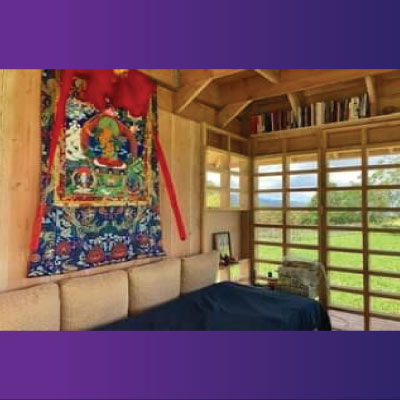
Kharma stay at La’i Peace Center, a project of Sakyadhita Hawai’i. (Foto: Karma Lekshe Tsomo)
The pandemic has turned the world upside down. All our illusions of security have been swept away. Our dreams for the future now stand in ruins, amidst great uncertainty. In the face of unbearable human misery and (un)natural disasters, we are having to completely reorder our priorities and reimagine our futures. Is there a constructive way to deal with these disasters and preserve our mental health?
As crazy as it may sound, there are many ways we can transform obstacles into insights. The news reports that break our hearts confirm the Buddha’s first teaching: everyone experiences suffering. Social and political upheavals confirm another core teaching: everything is constantly changing. In the moments of clarity and ease we feel throughout the day – moments when our minds are free from greed, anger, and confusion – we can glimpse nirvana. In a time of forced isolation, we can pursue our spiritual practice, reconnect with the Earth, and appreciate the silence and solitude.
Living in a city can be very comfortable, with all the modern conveniences, but today’s urban lifestyles are so fast and stressful that many people simply cannot keep pace and wind up living on the sidewalk. One solution is to return to the land and live a simple life. Planting trees, caring for the land, living in harmony with the birds, butterflies, and bugs, we discover many treasures and renew our spiritual life. Cultivating the land is hard work but, if we combine it with mental cultivation, learning to free our minds of greed and anger, we discover many treasures, both in nature and within ourselves. Every day we spend renewing the Earth, we strengthen our body and nurture a joyful heart.
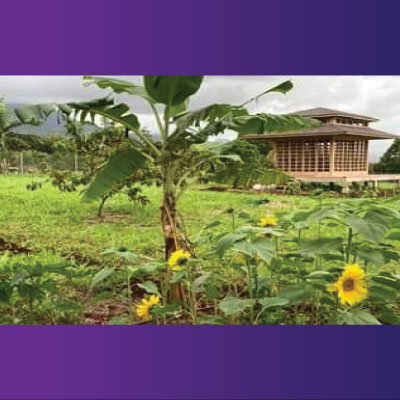
La’i Peace Center.(Foto: Karma Lekshe Tsomo)
Spiritual practice takes many forms and, if we practice sincerely and diligently, all of them can help transform our troubled world. When we consider the sufferings of living beings, our hearts fill with compassion, and we feel inspired to help renew the wounded land and flawed social structures. By simplifying our life and consuming less, we directly challenge exploitative economic systems. Studying the teachings of the great masters, we cultivate hearts of wisdom. By cultivating compassion and wisdom, like two wings of a bird, we can fly straight to awakening. As we awaken ourselves, we help awaken the world. If each of us holds up just one tiny piece of the sky, together we join a wondrous tapestry of countless dedicated and compassionate folk throughout the world also working to transform the world. We no longer need to seek freedom and happiness outside ourselves. We rediscover our own inner freedom and happiness, reflected in the sunshine on a simple flower.
*Dr. Karma Lekshe Tsomo profesor teologi dan studi agama di Universitas San Diego; seorang bhiksuni ko-pendiri Sakyadhita International Association of Buddhist Women.


